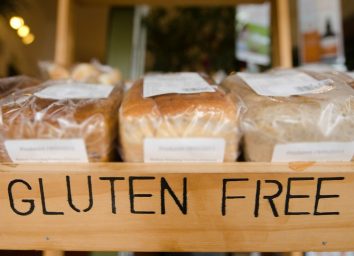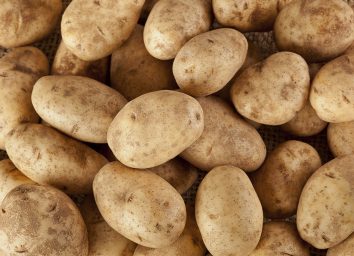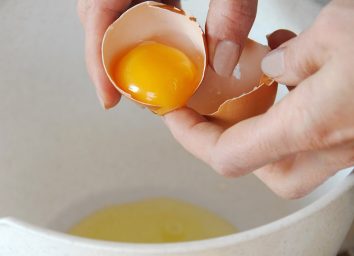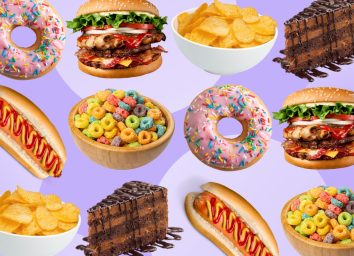These 19 Foods Only Seem Healthy—Nutrition Experts Explain Why
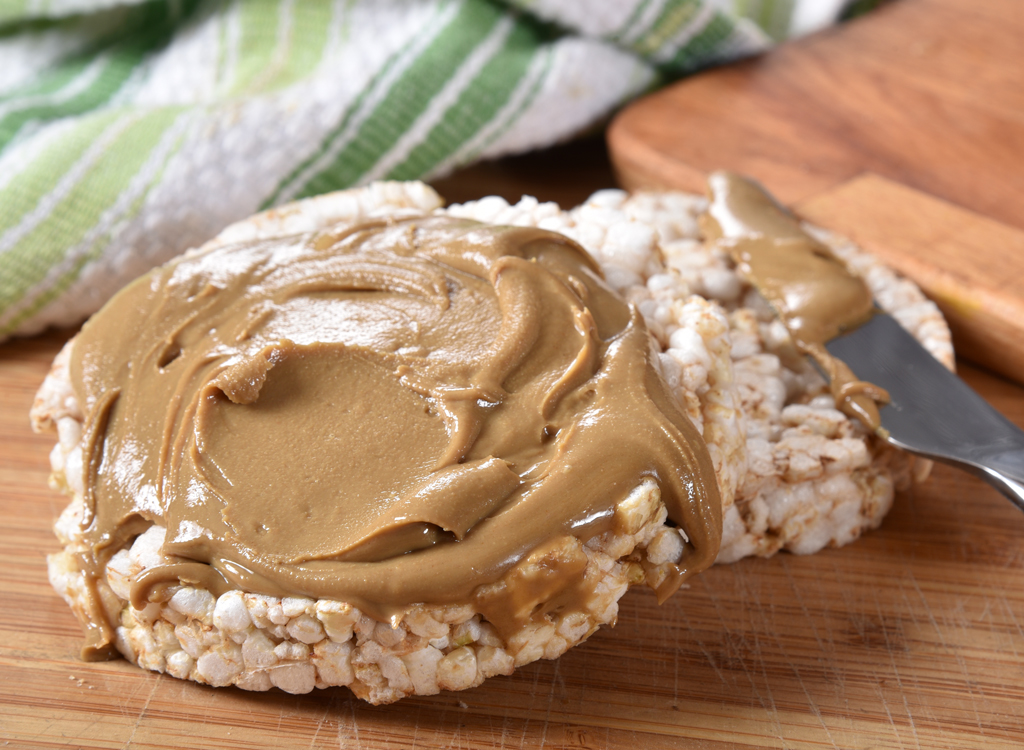
The supermarket is littered with aisles of products tainted with added sugars, artificial ingredients, and preposterous amounts of sodium. What's even worse is that many of these insidious culprits boast health halos, tricking consumers into thinking they're wholesome. Who knew grocery shopping could be so deceiving? To help clear some of the confusion surrounding popular pantry staples, we spoke to nutrition experts who helped us debunk these fake healthy foods. See which staples you should be looking out for.
Dried Fruit
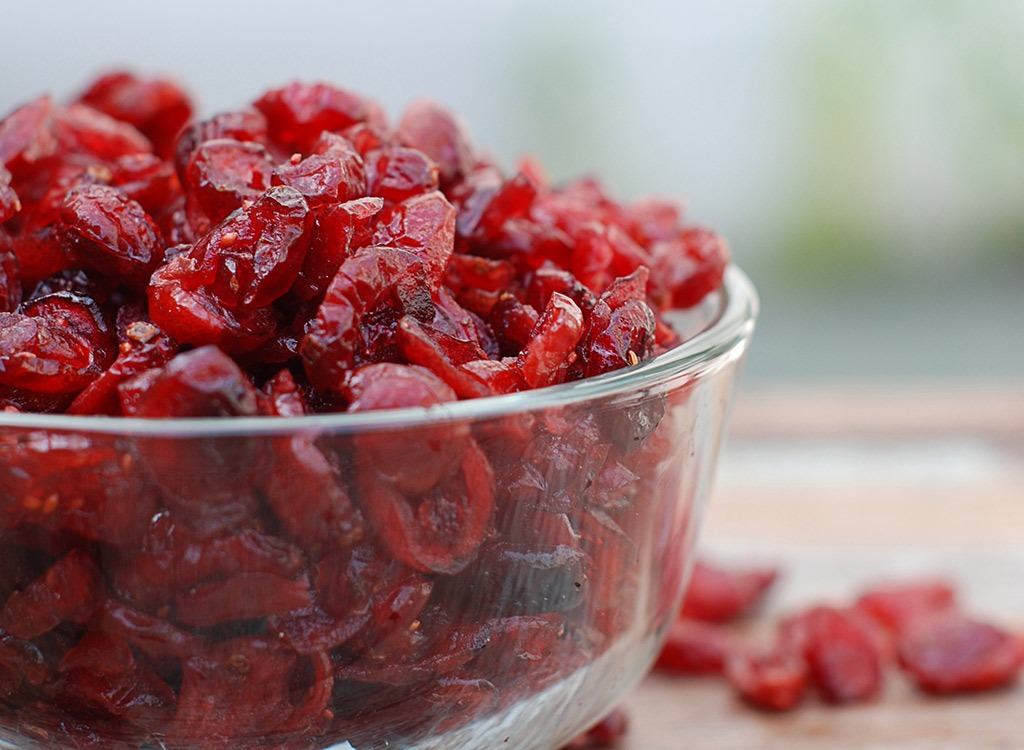
"Oftentimes, dried fruit contains added sugar. Even if dried fruits don't have added sugars, they are still concentrated sources of sugar. While these sugars are from the fruit themselves instead of being added, the high amounts can cause blood sugar spikes and crashes. Instead, go for fresh fruit that hydrates and fills you up as you eat it to keep portions under control."
— Dr. Candice Seti, PsyD, CPT, CNC
Protein Bars
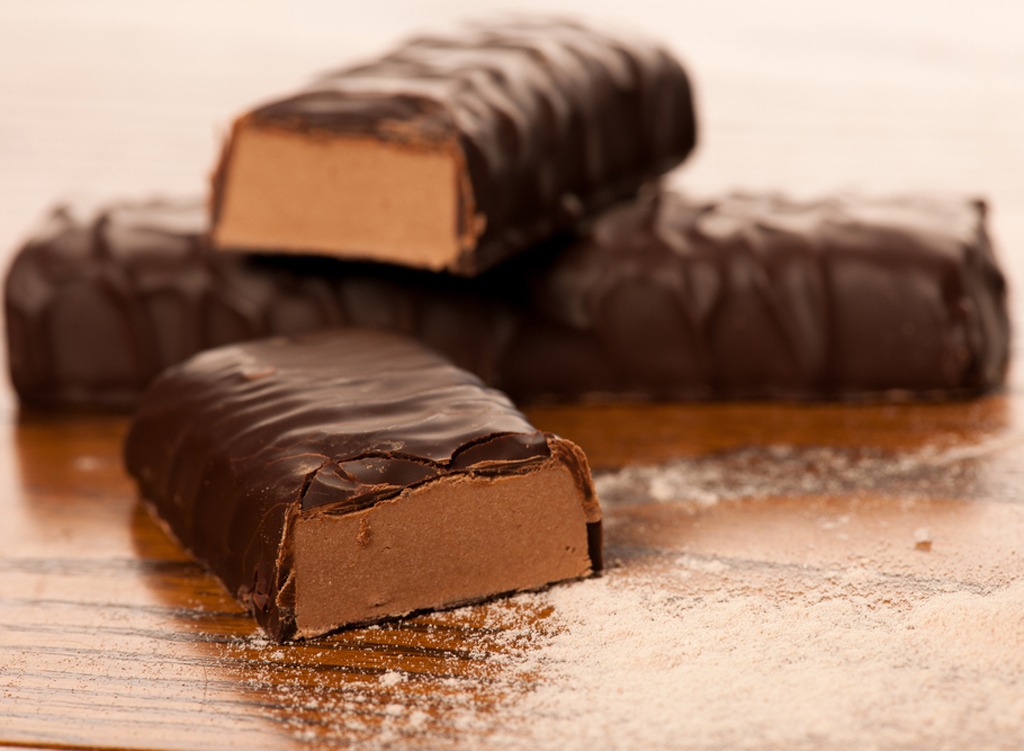
"Protein bars are built upon the premise that active people need them to keep them going. The problem is that most of these bars include loads of sugar, artificial fillers, and isolated ingredients that have been chemically extracted in a lab. Sure, they have protein, but that is not all that matters, and the rest of the ingredients make most protein bars more like a candy bar! The real deal: Get protein from lean meats, nuts, beans, and eggs. If you are looking for a portable source of protein, try bringing along a boiled egg. Or look for low-sugar protein bars made with real, recognizable ingredients."
— Seti
Veggie Chips
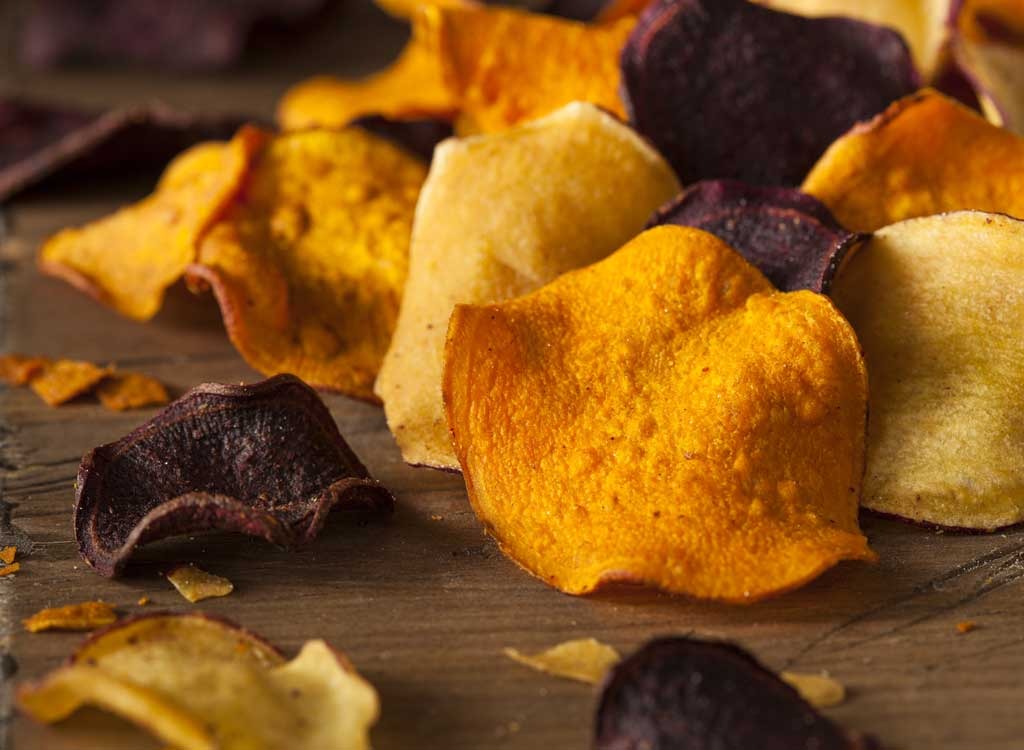
"The snack aisle of your local supermarket is filled with chips boasting all sorts of healthy ingredients: vegetables, chia seeds, flaxseeds, and more. Unfortunately, the inclusion of these healthy ingredients does not change the fact that these chips are still largely processed, refined carbohydrates that are usually fried. If you're craving crunch, try making your own popcorn at home. It's easier than you may think and requires just a few minutes on the stove top. Use coconut oil to grease your pot, and reap the benefits of the minerals in Himalayan salt by using it to flavor your popcorn. You can also add even more flavor and antioxidants with herbs and spices!"
— Seti
Sushi
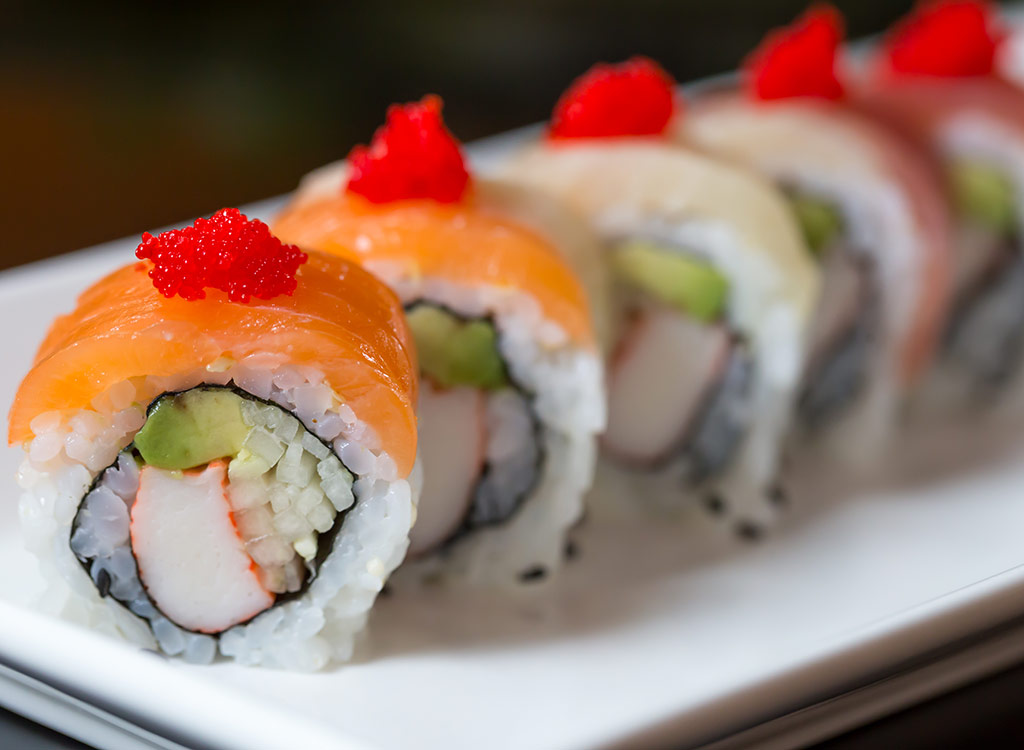
"The sticky white rice in sushi is typically made with sugar, salt, and vinegar, and is a source of refined carbohydrates. Also, one tablespoon of soy sauce provides about 900 milligrams of sodium. According to the American Heart Association, 2,300 milligrams is the daily recommended amount for the general population. Using just one tablespoon of soy sauce provides 40 percent of your RDA!"
— Carol Aguirre, MS, RD/LDN
Sports Drinks
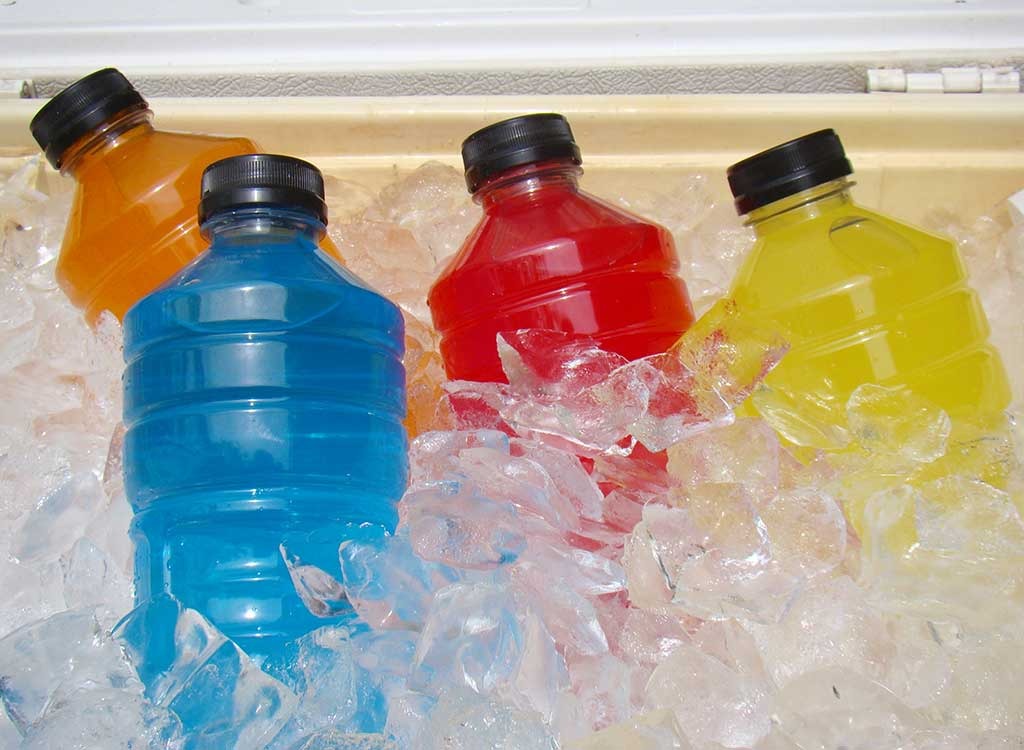
"One of the biggest offenders is sports drinks. Common sports drinks contain a substantial amount of sugar, primarily in the form of glucose, fructose, or dextrose. A 20-ounce Gatorade contains 34 grams of sugar, which is only 5 grams of sugar less than a 12-ounce can of Coca-Cola. The reality is that most people will not burn a sufficient amount of calories during their workouts to make up for the calories in the sports drinks, and would be better off adding electrolytes to their water rather than opting for sugary beverages."
— Dr. Shaun Kennedy, ND
Gluten-Free Foods
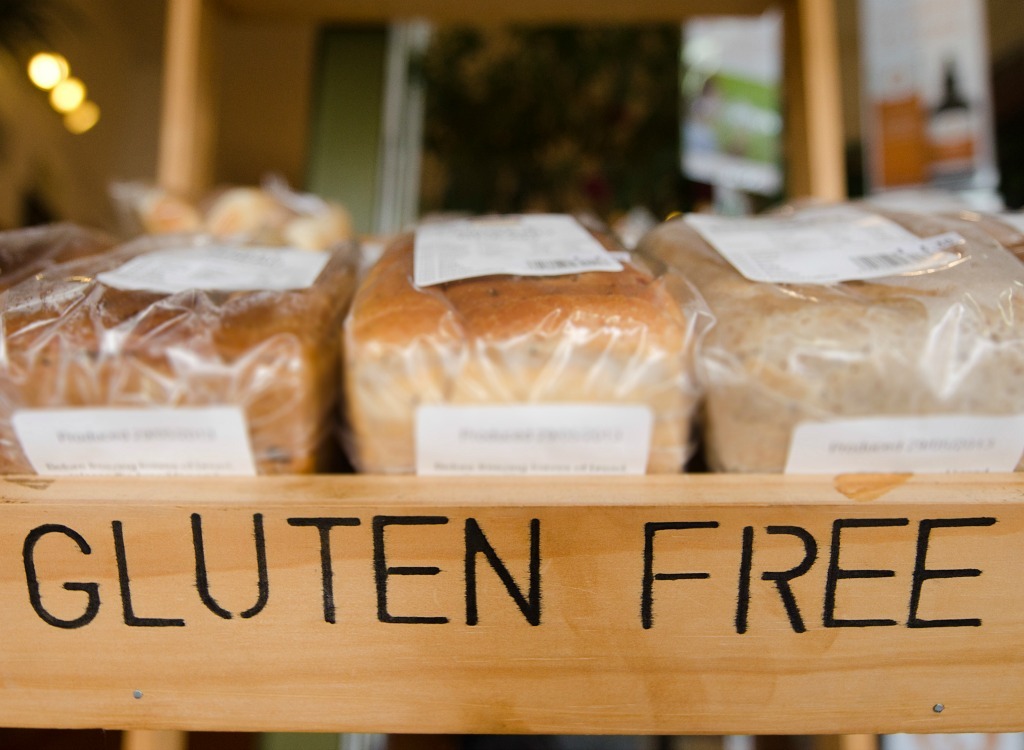
"People think gluten-free equals healthy. As a practicing nutritionist, I can attest that this is not the case. Many gluten-free snack foods and breads often contain a variety of rice flours, potato starch, and added sugars that aren't nutritious. If you don't have a gluten allergy, I suggest the real thing! Gluten-free items often contain more calories than a normal product with gluten."
— Lisa R. Young, PhD, RDN
Fat-Free Products
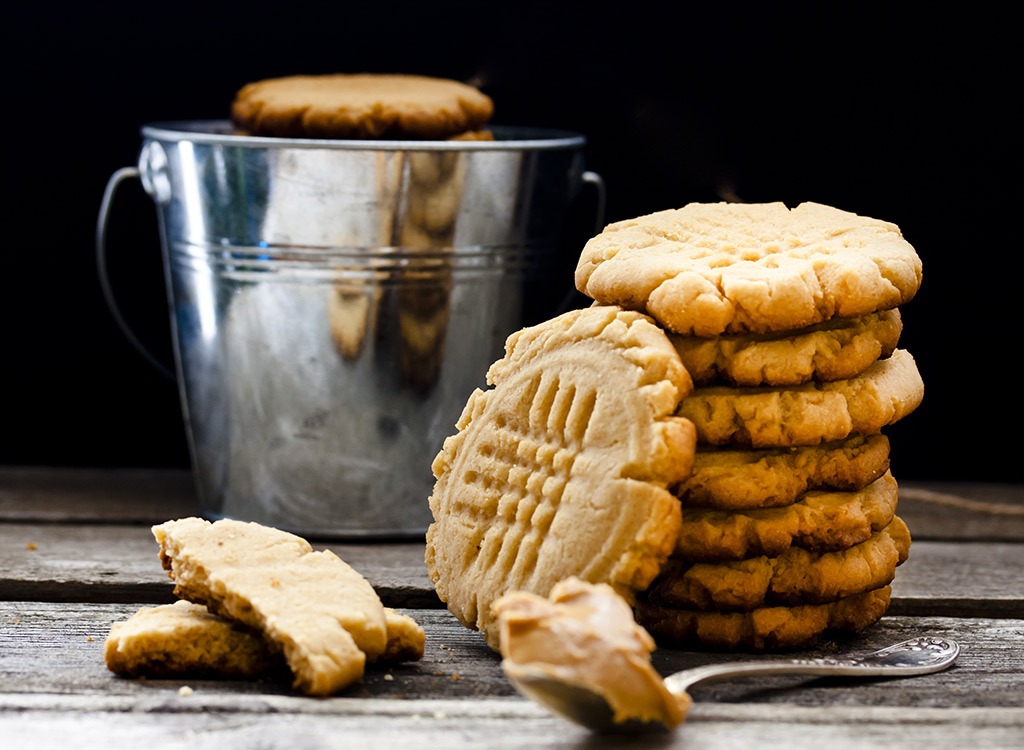
"Many consumers often think that foods with fat-free labels are healthy. However, just because a label sports the term 'fat-free,' that doesn't mean it's healthy. Fat-free cookies, crackers, or even yogurt with lots of added sugars don't give you a free pass. The problem is that many of these fat-free foods often contain more calories and sugar than the real deal."
— Young
Fruit On The Bottom Yogurt
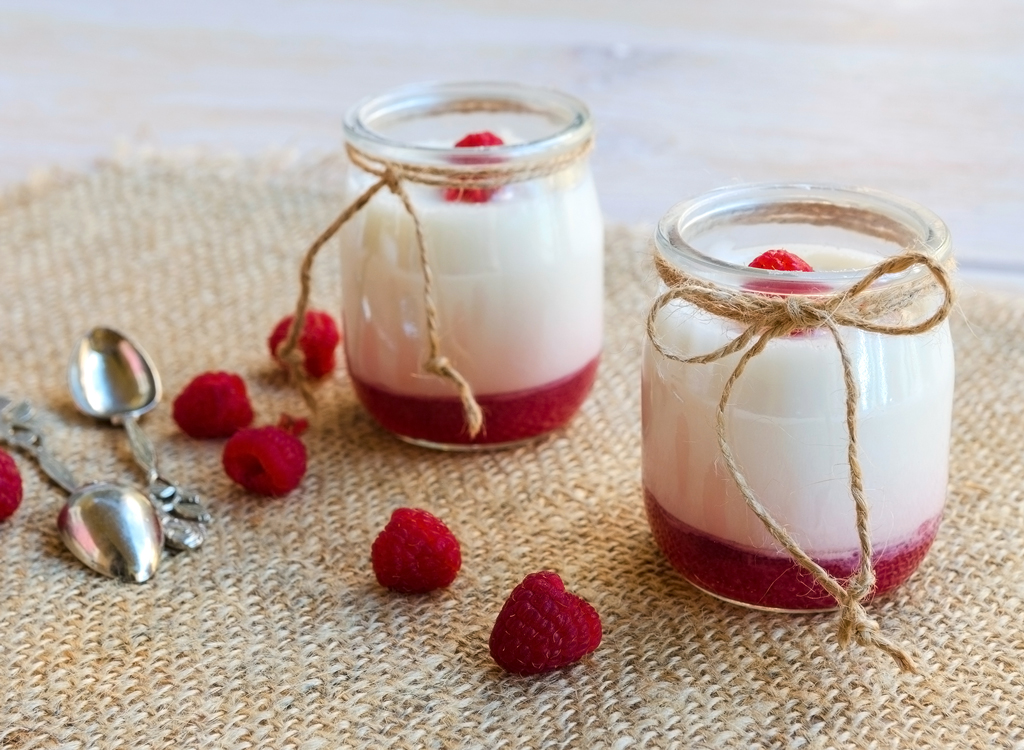
"It is not consumers' fault that they fall for these sugar-laden options. We have all been told that dairy is critical for strong bones and that fruit is healthy, so packaged yogurt with 'fruit' in it seems like the perfect marriage, right? However, the issue is that instead of simple fruit, what is really on the bottom of these yogurt cups is a mixture of sugar, cornstarch, and some fruit. With this in mind, take Dannon Blueberry Fruit On The Bottom as an example: after milk, the second ingredient is sugar, the third is water, the fourth is cornstarch, and the fifth is blueberries. This means the yogurt is more sugar than blueberry, which explains the 21 grams of sugar per container. For reference, that's equivalent to about four packets of sugar added to the yogurt."
— Sydney Greene, MS, RD
Full-Fat Canned Coconut Milk
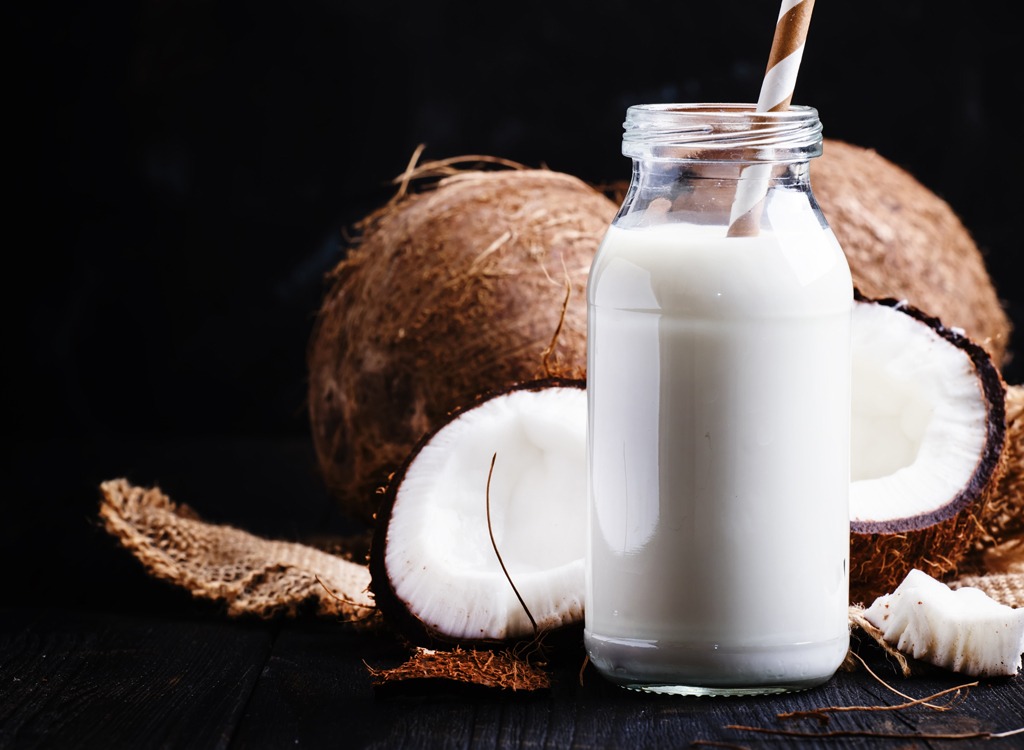
"The American Heart Association recommends limiting daily intake of saturated fat to 13 grams or 7 percent of total calories per day. With 100 calories and 9 grams of saturated fat per 1/4-cup serving, full-fat coconut milk is simply not a heart-healthy choice. Consumers may think it's healthy because canned, full-fat coconut milk is a popular alternative to dairy whipped cream that sports 'vegan,' 'organic,' and 'dairy-free' labels."
— Nancy Woodbury, MA, MS, RD, LD/N
Acai Bowls
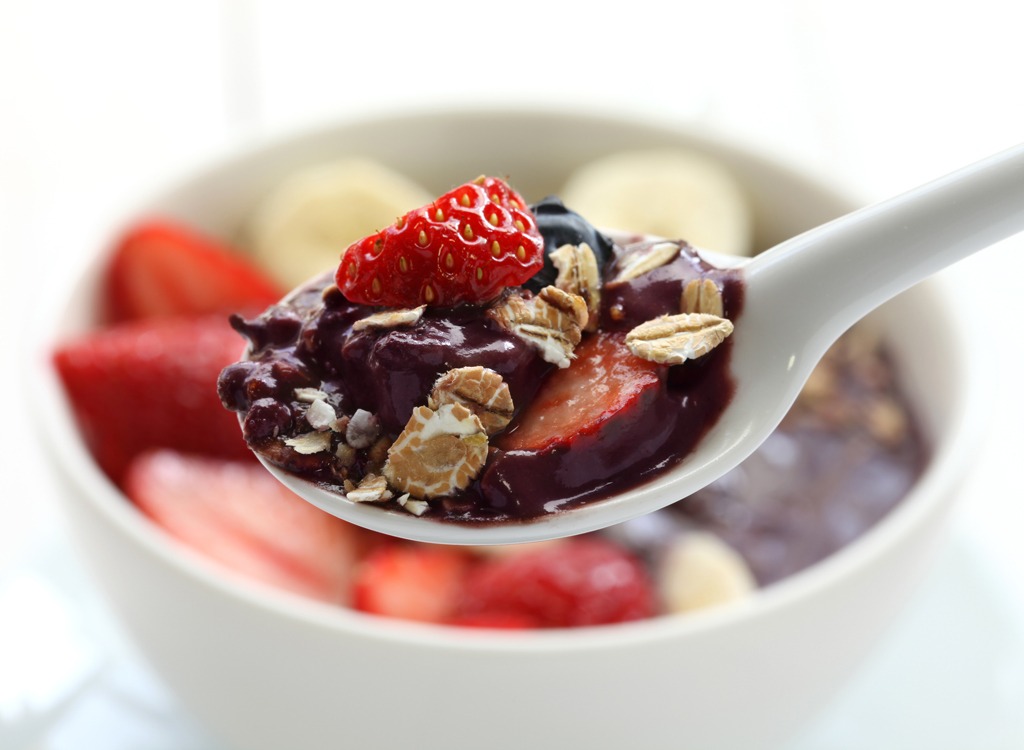
"Acai or smoothie bowls top the chart when it comes to unhealthy foods that people mistake as healthy. All that fruit, yogurt, and various toppings can lend your typical bowl around 638 calories and 68 grams of sugar!"
— Evie Fatz, Certified Nutrition Coach and Certified Strength and Conditioning Coach
Fruit Juice
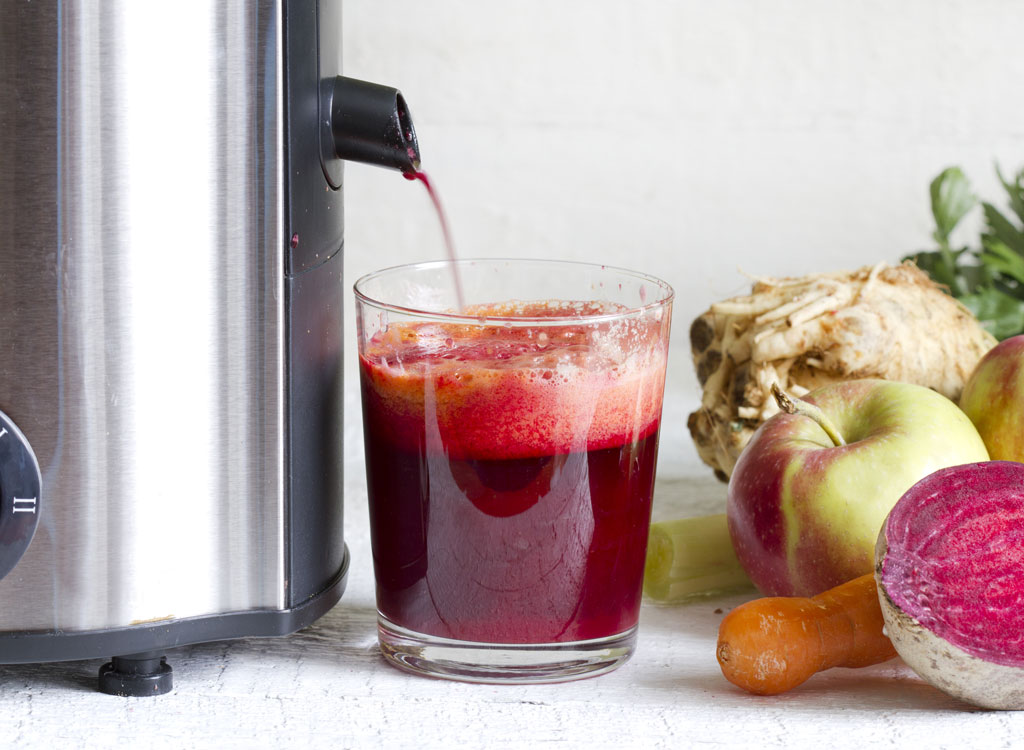
"Fresh-pressed juices are the latest trend, but, unfortunately, they're not the health food they claim to be. Some have upwards of 200 calories per 6-ounce serving and 32 grams of sugar. Additionally, because the fruits and vegetables are pulverized into liquid, our bodies miss the benefits of the fiber found in these whole foods."
— Fatz
Bottled Salad Dressing
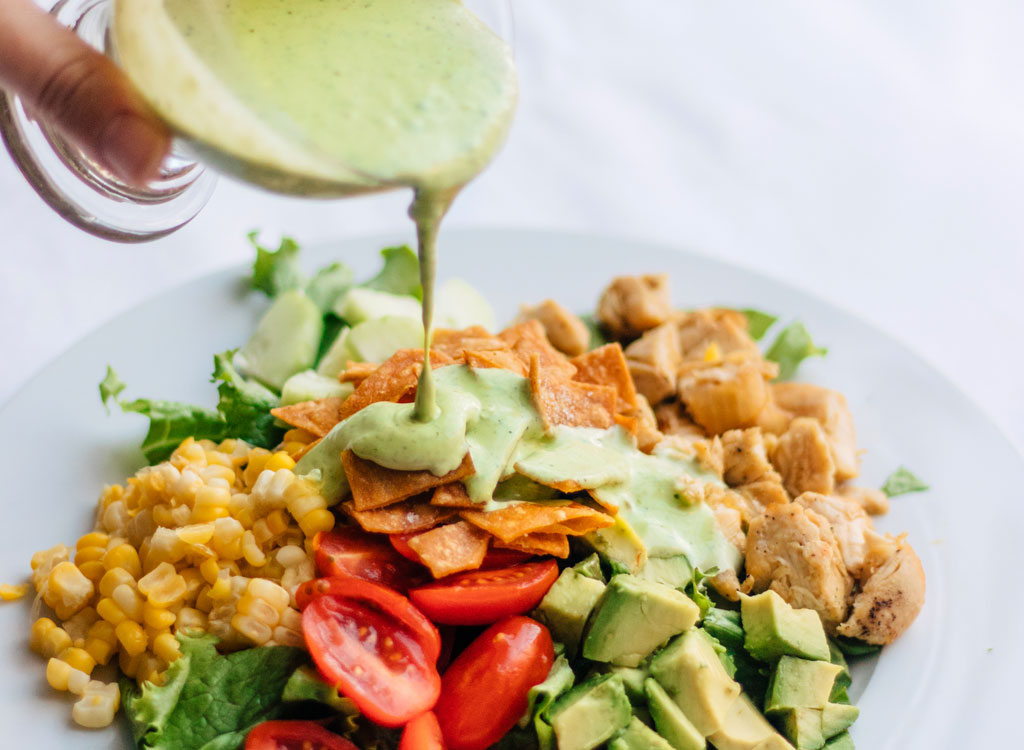
"Commercial salad dressings are chock full of unhealthy oils, preservatives, and sugars, which quickly turn your greens into a far-from-healthy meal. Instead, opt for a simple dressing made with extra virgin olive oil, vinegar, and dijon mustard."
— Fatz
Granola
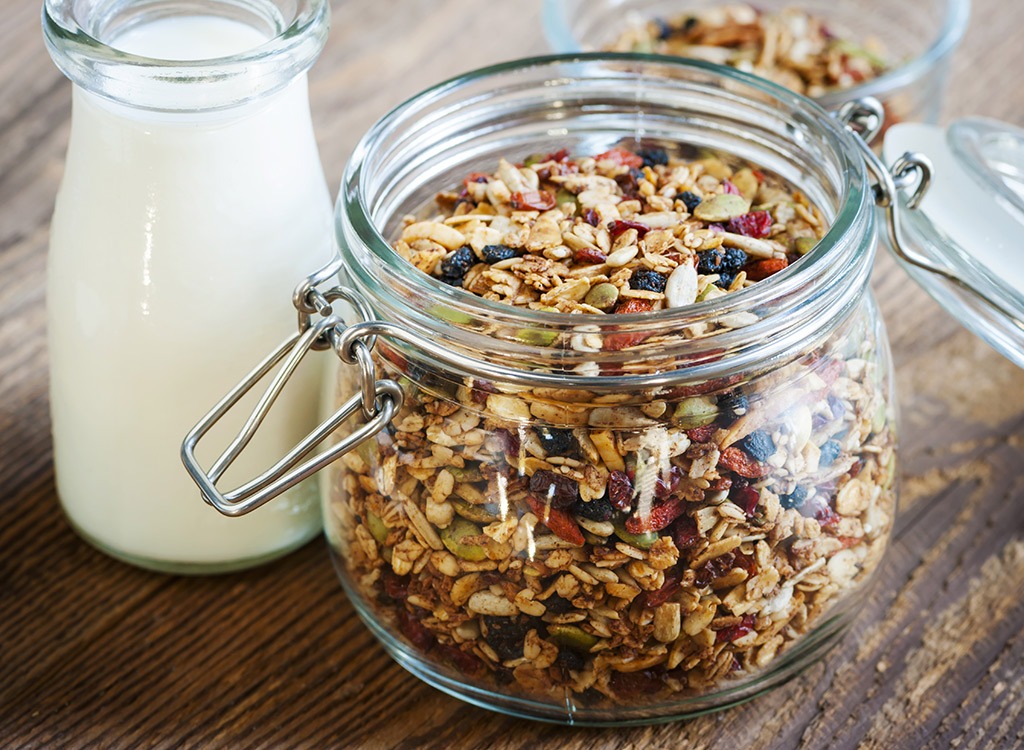
"Granolas are often advertised as 'healthy' alternatives to sugary breakfast cereals. However, certain granolas can actually contain more sugar and calories than processed cereals. When counseling clients, I urge them to choose granolas made with natural ingredients rich in healthy fats and proteins such as seeds, nuts, unsweetened coconut, quinoa, and whole oats. Avoid granolas that contain more than 6 grams of sugar per serving and brands that use artificial flavors and sweeteners."
— Jillian Kubala, RD
Premade Smoothies
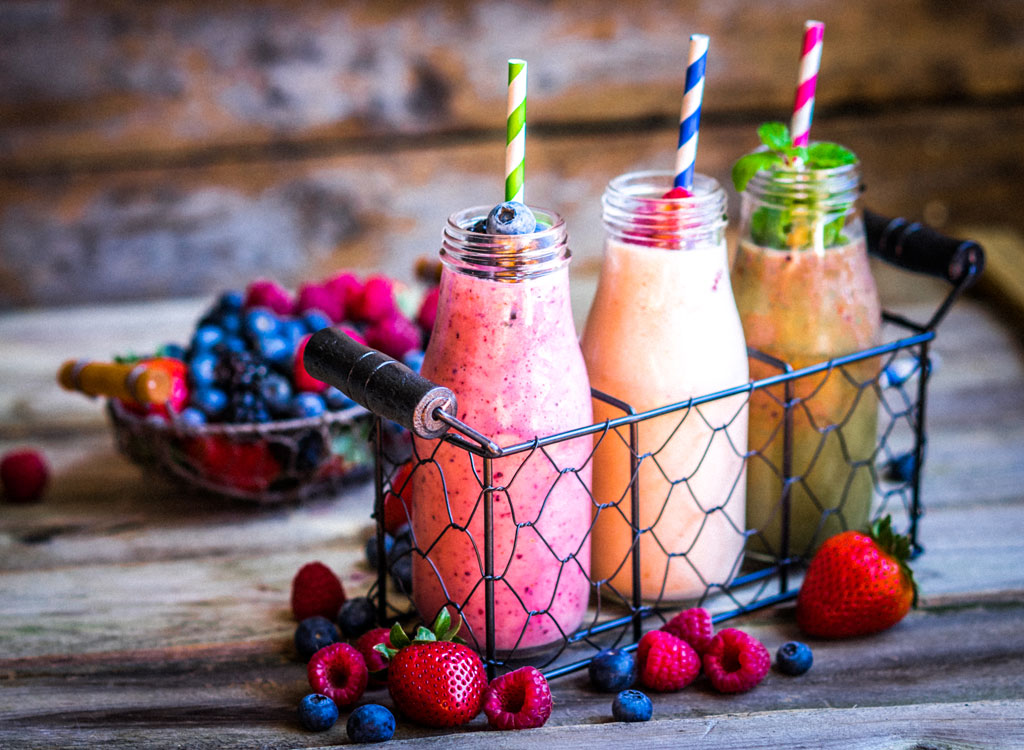
"Bottled smoothies such as Odawalla are loaded with sugar and calories. Although these drinks contain natural ingredients, the body isn't meant to process the amount of sugar contained in these bottles. Instead, opt for a piece of whole fruit paired with a protein, like nuts or seeds. This combo will help stabilize your blood sugar and keep you feeling full for a longer period of time."
— Kubala
Agave
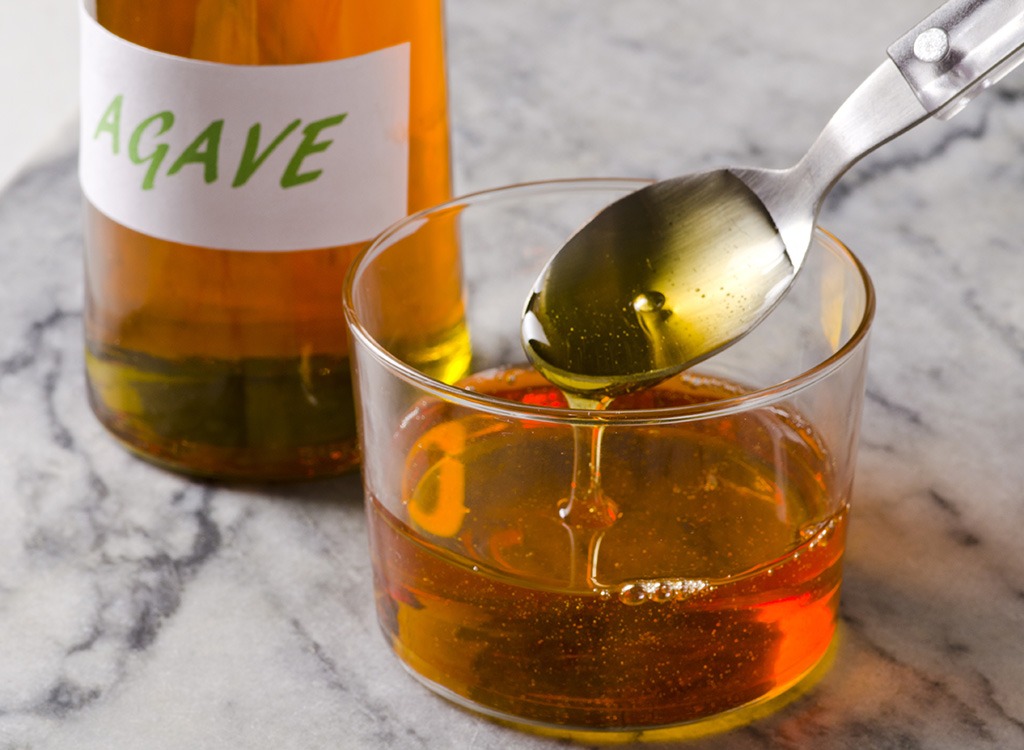
"Agave nectar is a staple sweetener in the healthy community. It is touted as a better alternative than sugar because of its low glycemic index, but in actuality, it contains extremely high levels of fructose. While regular sugar is about 50 percent fructose, agave nectar is a whopping 70-90 percent fructose."
— Fatz
Kombucha
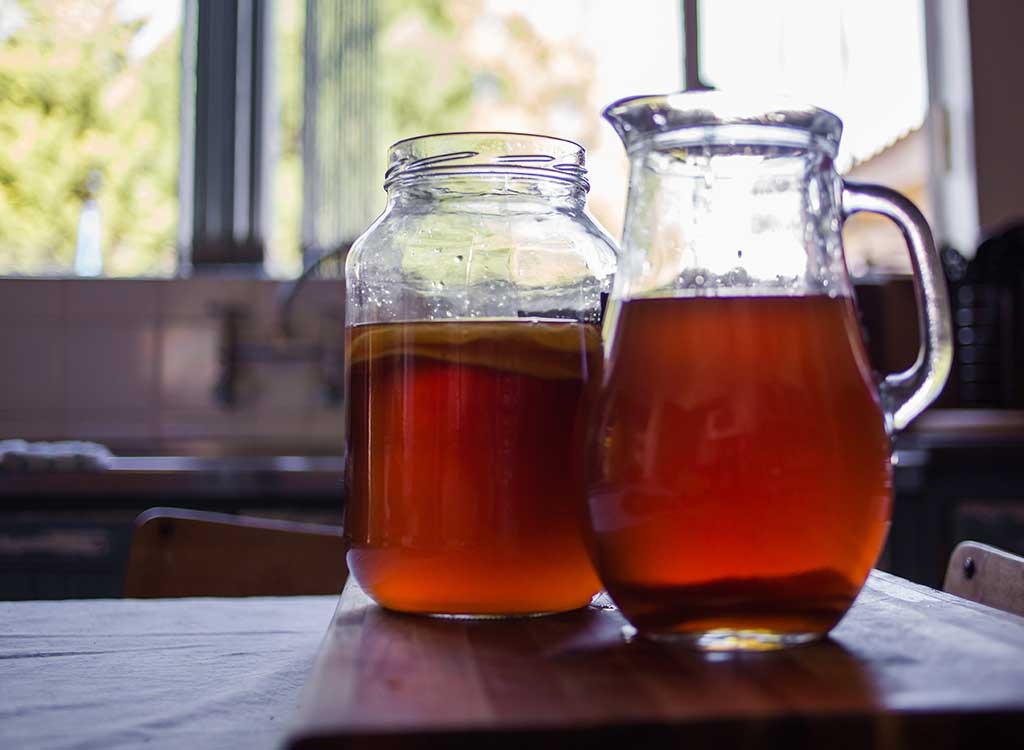
"This does not apply to all brands, but kombucha has become a trend that is marketed as super healthy because it contains probiotics. However, certain brands are quite high in sugar and are also especially pasteurized to stop the fermentation once it hits the shelves, reducing probiotic delivery."
— Lisa Shanken, Certified Health Coach and Certified Personal Trainer
Energy Drinks

"Energy drinks are loaded with sugar, specifically high fructose corn syrup, which might be fine for the young and athletic, but may contribute to weight gain for menopausal women trying to avoid the dreaded muffin top. Opt for no-sugar-added fruit essence water or unsweetened flavored seltzer instead."
— Dr. Alyssa Dweck, MS, MD, FACOG
Rice Cakes
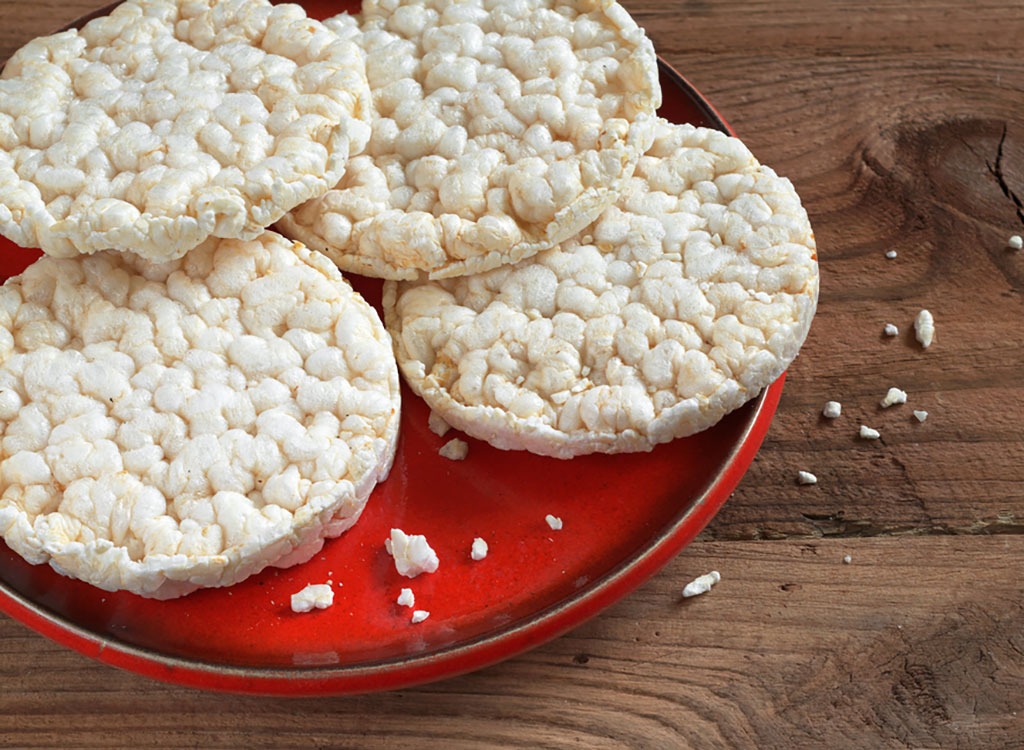
"Rice cakes are great for some people because they are gluten-free. However, they don't really provide any nutritional value. They are usually made from refined rice and have very little fiber and protein. Rice cakes also have a very high glycemic index, which can raise blood sugar levels."
— Neda Varbanova, MS, Certified Culinary Nutritionist
Salted Pretzels
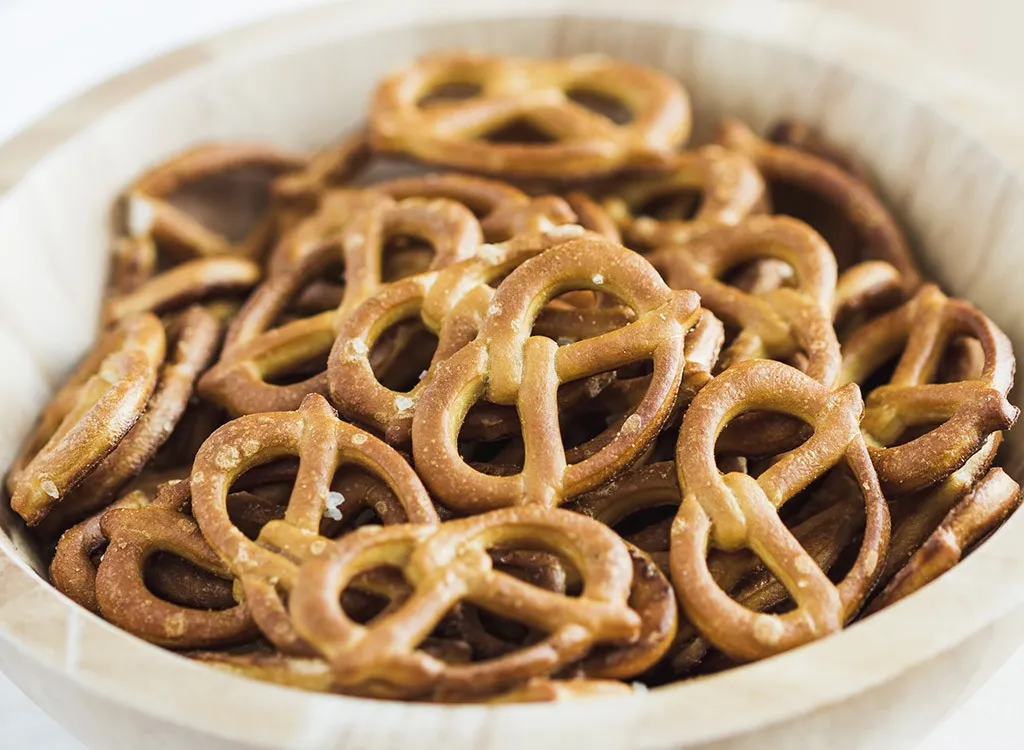
"Pretzels can be very deceiving, tricking many people into thinking they're a healthy snack. What many people don't realize is that they contain a lot of sodium, a leading cause of hypertension and heart disease. In fact, just 10 small pretzel twists can contain more than a third of your recommended sodium intake for the day! Pretzels are also made of refined carbohydrates, which cause your blood sugar levels to spike, and contain little to no fiber, protein, or healthy fats."
— Baraa El Sabbagh, RD, Personal Trainer
